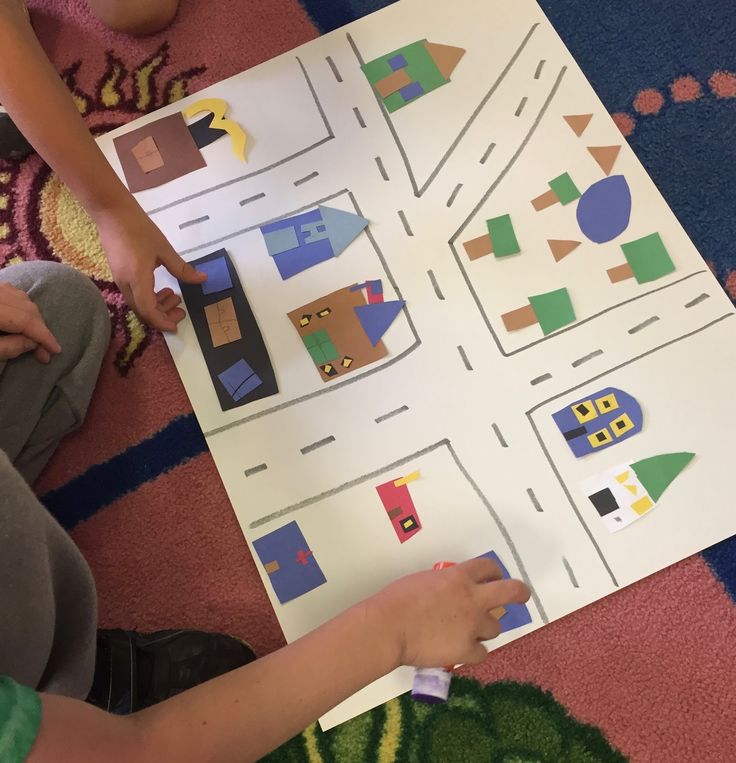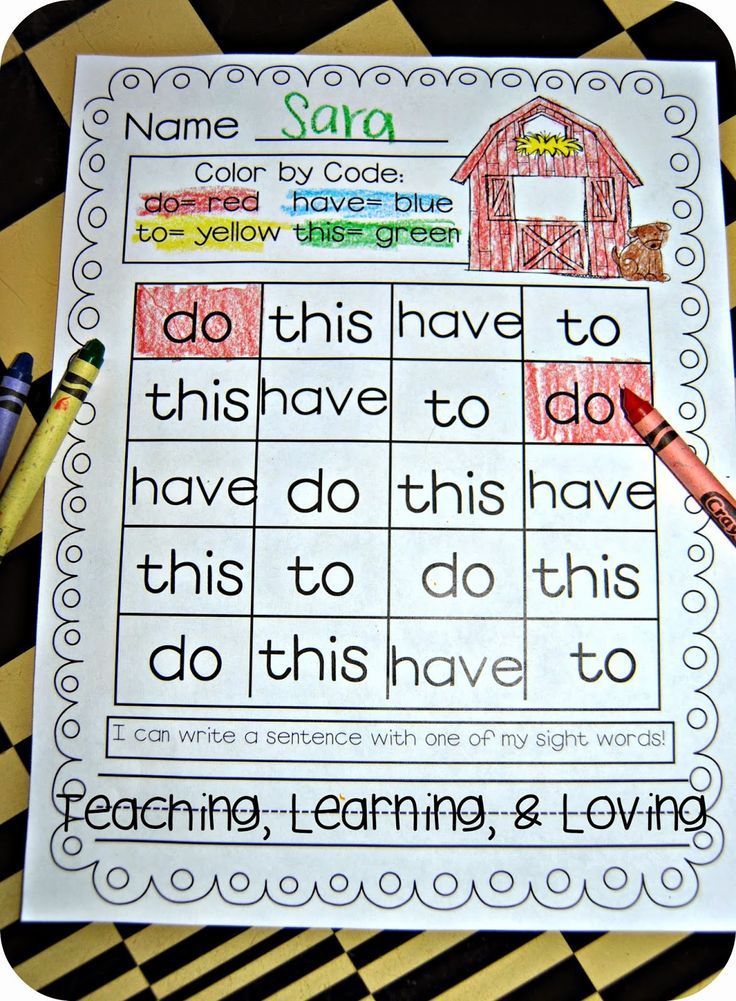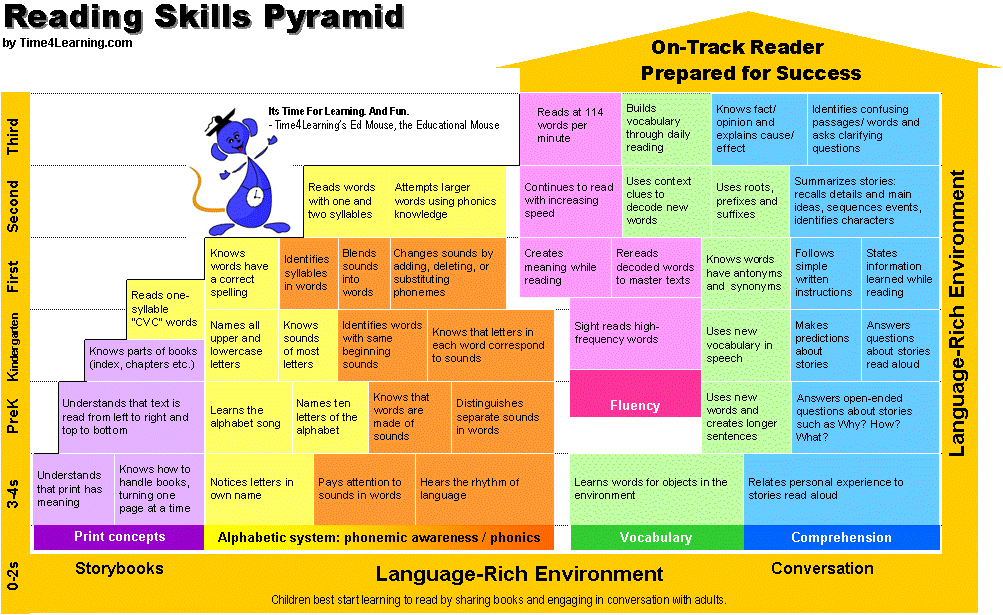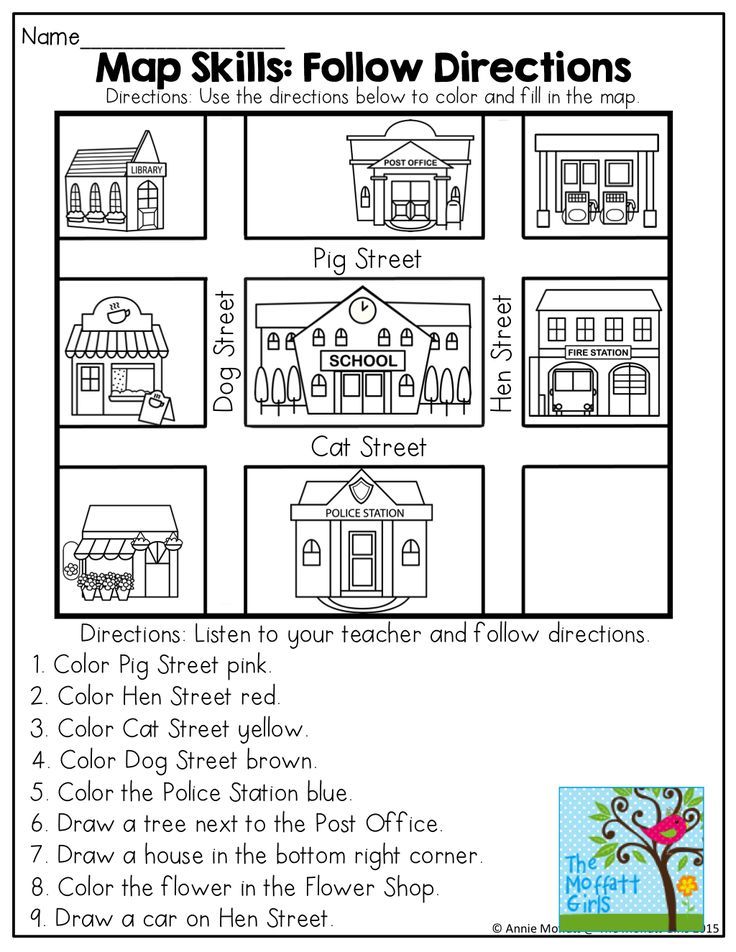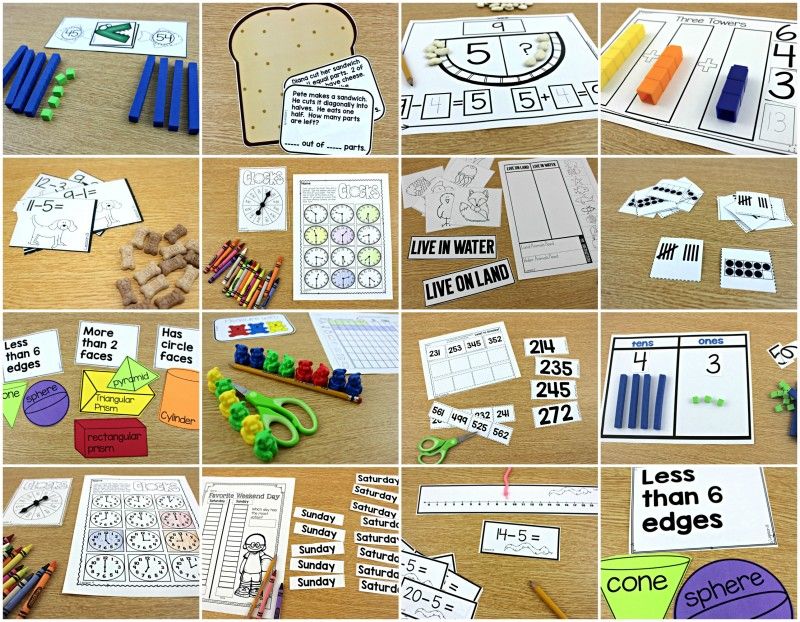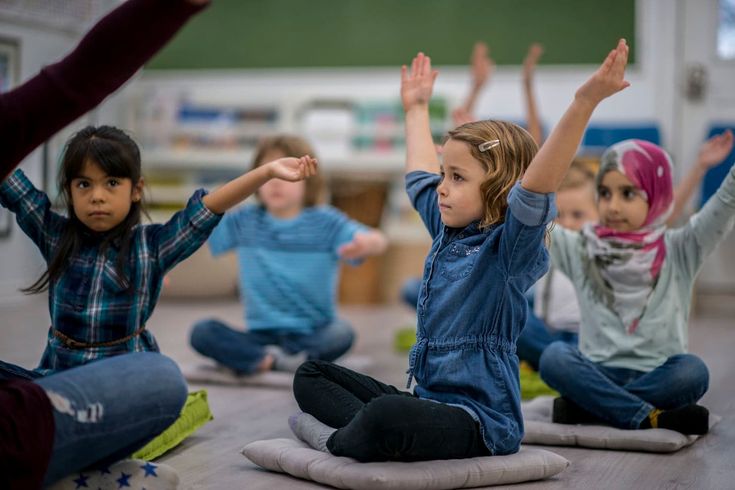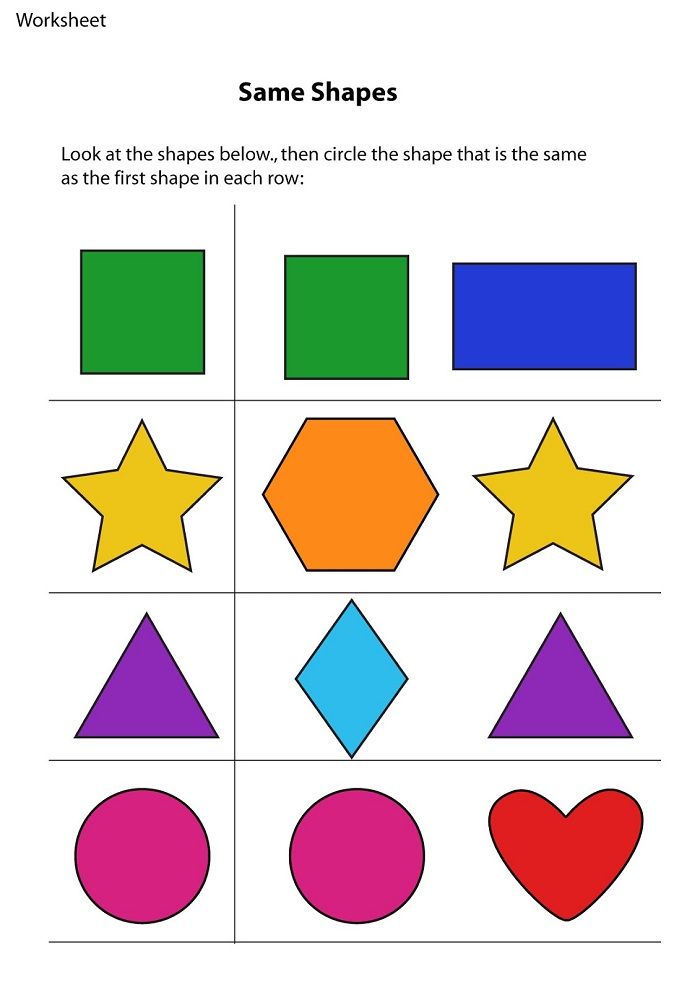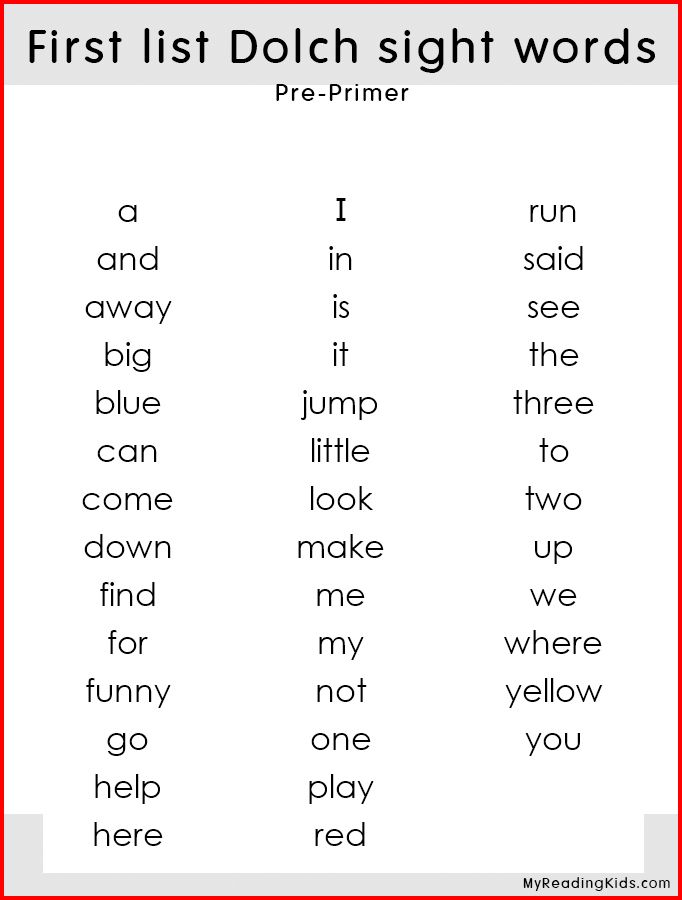Learning skills for kindergarten
Kindergarten skills checklist
- Reading & Writing
- Mathematics
- Logic & Problem Solving
- Science
- Social Studies
- Creativity & Life Skills
- Personal & Social Skills
- Language Learning
Is your child ready for kindergarten? Refer to this skills checklist.
Is your child ready for kindergarten? Although each child is unique and develops at his or her own pace, most educators and developmental experts agree upon a certain set of skills as essential tools for further development and achievement in school. Here’s a checklist of the developmental skills children need exposure to and knowledge of before they enter kindergarten.
Social skills
- Uses words to solve problems or conflicts
- Uses words like please, thank you and excuse me
- Adjusts to new situations
- Attempts new tasks knowing it’s okay to make mistakes
- Shows pride in accomplishments
- Follows a simple direction
- Stays with an activity to completion
- Asks for help
- Interacts appropriately with adults and peers
- Respects the rights, property and feelings of others
- Works cooperatively (listens to others, shares and takes turns)
- Demonstrates increasing self-control
- Participates in clean-up activities
- Takes responsibility for own belongings (lunch, coat, etc.
)
- Is able to dress self
- Adheres to a routine and schedule for personal hygiene, eating meals and going to bed
- Uses good hygiene habits and table manners
- Uses appropriate bathroom skills
- Follows simple safety rules
- Offers to help peers and family
- Tries to regulate emotions properly and articulates feelings in words
Motor skills
- Puts puzzles together
- Cuts with scissors
- Holds and uses crayons, markers, pens and pencils correctly
- Builds using blocks
- Tries to tie own shoes
- Bounces, kicks, throws and catches a ball
- Rides a tricycle
- Enjoys outdoor activities, like running, jumping and climbing
Reasoning & concept development
- Matches or groups objects according to size, shape or color
- Groups objects that are the same
- Understands concepts of in/out, under/over, on/off, front/back, etc.
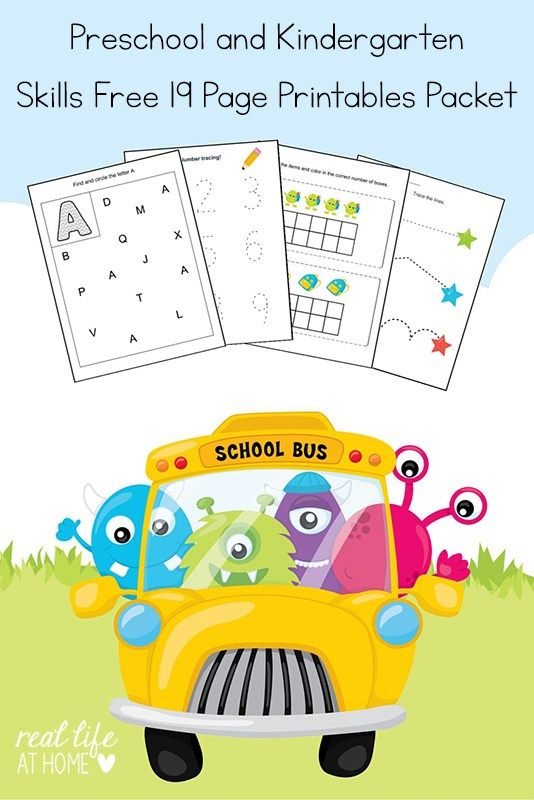
- Shows an understanding of the passing of time, including concepts of before and after, and today, yesterday and tomorrow
- Experiments enthusiastically with new games and toys, sometimes in a trial-and-error manner
- Describes how objects are the same or different
Language skills
- Talks in sentences
- Follows one- and two-step oral directions
- Uses sentences that include two or more ideas
- Uses descriptive language
- Knows by heart and recites some common nursery rhymes and songs
- Pretends, creates and makes up songs or stories
- Tells or retells stories and/or everyday experiences
- Asks questions and expresses curiosity
- Expresses ideas so that others can understand
Reading skills
- Looks at books or pictures on their own
- Pretends to read books by reading the pictures
- Tries to read in everyday situations (signs, labels, etc.)
- Recognizes rhyming words
- Blends sounds into words
- Recognizes some common words in print
- Recognizes many uppercase and lowercase letters
- Recognizes some letter sounds
- Describes characters’ actions and feelings in a story
- Relates stories to personal experiences
- Puts events of a story in order
Writing skills
- Tries to write, scribble or draw
- Asks you to write words or notes to others
- Attempts to write own name and recognizes own name in print
Mathematics concepts
- Compares the size of groups of objects using language such as “more,” “less” and “same as”
- Arranges objects in size order (big to small, or small to big)
- Uses comparison words, like "bigger," "smaller," "heavier," etc.
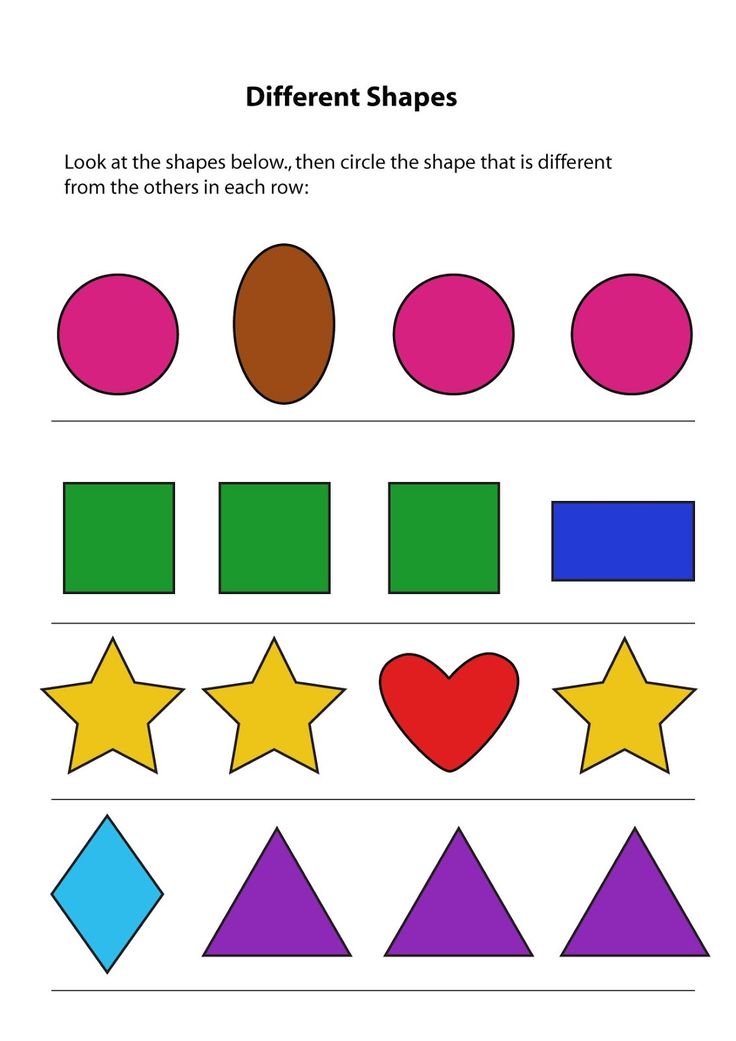
- Understands concepts of none, some and all and more than and less than
- Identifies and draws a square, circle and triangle
- Correctly counts four to ten objects
- Knows that the final number counted represents the total number of objects in a set
- Recognizes some numbers, 1 – 10
- Can distinguish numbers from letters, and understands that numbers relate to quantity
- Understands the effects of addition and subtraction
Science
- Shows interest and asks questions about objects and events observed in their environment
- Notices common properties and differences among objects and materials
- Knows some facts about common plants and animals, such as what they eat and baby names
- Recognizes some objects in the sky such as the sun, moon, clouds and lightning
Creative arts & music
- Recognizes and names basic colors
- Draws recognizable shapes and simple objects
- Tells a story with pictures
- Moves to a beat
- Explores with common musical instruments
- Enjoys improvising or copying musical patterns
Social studies
- Recognizes basic traditions such as birthdays
- Understands that people live in different parts of the worlds and have different customs and traditions
- Explores simple maps and visual representations of neighborhoods or communities
Kindergarten Readiness Checklist | Understood
When kids are getting ready for kindergarten, many families wonder about academic skills. But self-care and social and emotional skills are important for kindergarten readiness, too. For example, does your child need help using the bathroom? Learn about the different kinds of skills kids are expected to have when they start kindergarten.
But self-care and social and emotional skills are important for kindergarten readiness, too. For example, does your child need help using the bathroom? Learn about the different kinds of skills kids are expected to have when they start kindergarten.
Language skills
- Speak in complete sentences and be understood by others most of the time
- Use words to express needs and wants
- Understand two-step directions
- Make comparisons and describe relationships between objects like big/little, under/over, and first/last
Reading readiness skills
- Enjoy listening to stories
- Know how to find the first page of a book and which way to flip the pages
- Recognize familiar logos and signs, like stop signs
- Recite the alphabet and identify most of the letters
- Recognize and try to write their own name
- Recognize when two words rhyme (like cat and bat)
- Start to connect letter sounds to letters (like the sound of the first letter in their name)
- Draw a picture to help express an idea
Math skills
- Count from 1 to 10 without skipping numbers
- Match a number to a group of five or fewer items (“I see three cats”)
- Recognize and name basic shapes (square, circle, triangle, rectangle)
- Understand more than and less than
- Arrange three objects in the right order (like from smallest to biggest)
- Name or point to the colors in a box of eight crayons
Self-care skills
- Use the bathroom and wash up on their own
- Get dressed on their own (but may still need help with buttons, zippers, and shoelaces)
- Know and can say their first and last name and age
Social and emotional skills
- Separate from a parent or caregiver without getting overly upset
- Interact with other kids
- Pay attention for at least five minutes to a task an adult is leading, like listening to directions for an activity or discussing the day’s weather during circle time
Fine motor skills
- Use a pencil or crayon with some control
- Use scissors
- Copy basic shapes
- Make distinct marks that look like letters and write some actual letters, especially the ones in their name
- Put together a simple puzzle
Gross motor skills
- Run
- Jump with feet together
- Hop on one foot
- Climb stairs
- Bounce a ball and try to catch it
How to help your rising kindergartner
Kids develop skills at different rates. It’s not unusual for kids to have strong skills in one area and weak skills in other areas. Some states use kindergarten readiness tests to get a sense of which early learners might need extra help in some areas.
It’s not unusual for kids to have strong skills in one area and weak skills in other areas. Some states use kindergarten readiness tests to get a sense of which early learners might need extra help in some areas.
If you’re concerned your child isn’t ready for kindergarten, talk with your child's preschool teacher and work together to come up with a plan to address any trouble spots. You might also want to talk with your child’s health care provider. Learn about the pros and cons of delaying kindergarten for a year.
If your child is headed for kindergarten, explore these steps for a smooth transition. You might also want to see a set of videos on what kindergarten academic skills look like in action.
Key takeaways
Kids develop skills at different rates and might be strong in some areas and weak in others.
Some states use kindergarten readiness tests to see if kids need extra help in certain areas.
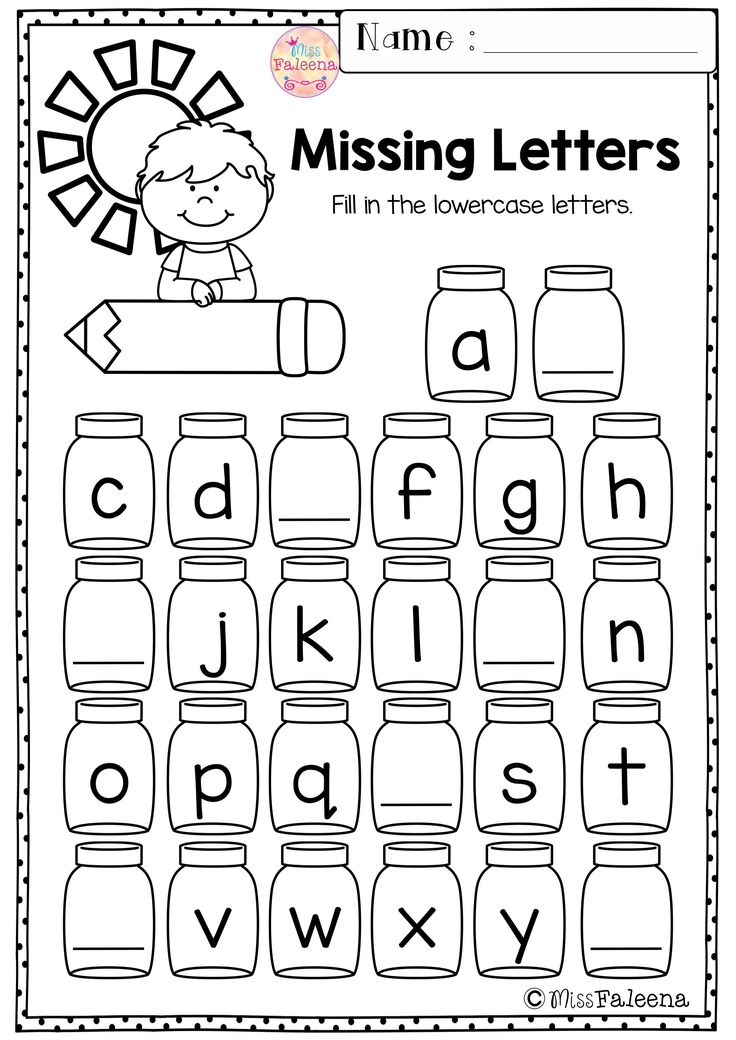
If you’re concerned your child might not be ready for kindergarten, talk to your child’s preschool teacher about how to help.
Tell us what interests you
About the author
About the author
Amanda Morin is the author of “The Everything Parent’s Guide to Special Education” and the former director of thought leadership at Understood. As an expert and writer, she helped build Understood from its earliest days.
Reviewed by
Reviewed by
Kristen L. Hodnett, MSEd is a clinical professor in the department of special education at Hunter College in New York City.
8 skills that are useful for developing a preschooler and elementary school student
School preparation / Early childhood development
The LogicLike team talks about the skills that are important to master in preschool and primary school age in the first place.
LogicLike is an online platform for the development of children aged 5-12.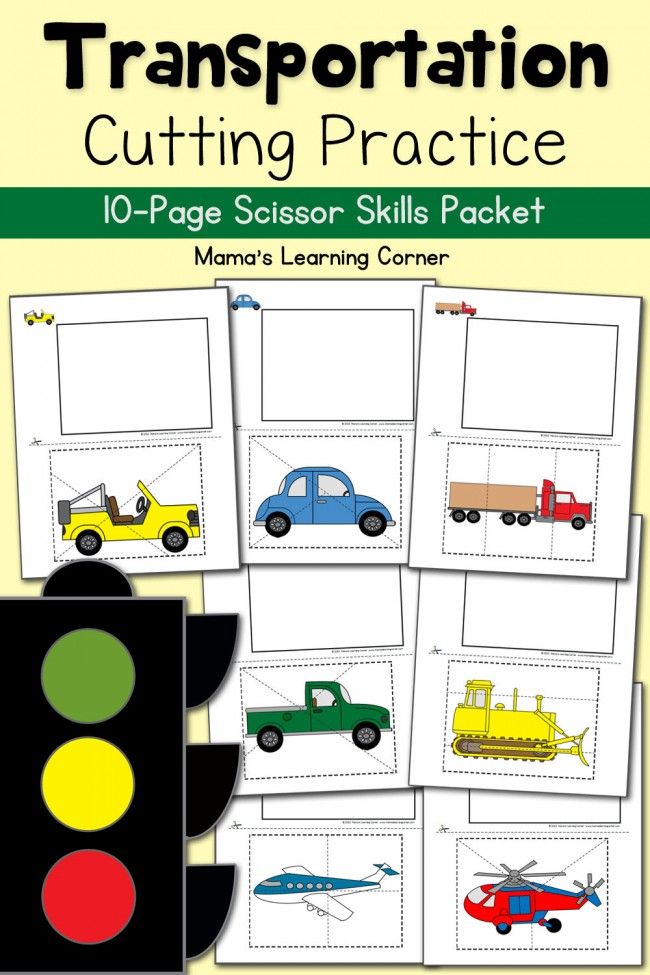 We teach children to reason and work with information, develop logic and non-standard thinking.
We teach children to reason and work with information, develop logic and non-standard thinking.
1. Ability and desire to learn: cognitive abilities and interest in learning
Perception, attention, memory, imagination, speech, thinking are mental cognitive processes that make up the ability and desire to learn. For most children, the development of cognitive interest is a natural process laid down by nature. At preschool age, inquisitive children most of all want to discover something new.
Closer to 5-7 years, the child no longer simply perceives information in finished form, as it was before. An inquisitive mind seeks to find answers to questions on its own. An inquisitive preschooler learns to bring different concepts into one system, analyzes them, compares them, looks for patterns and draws conclusions.
Hot interest and curiosity are the basis of independent motivation of a preschooler and a first grader to study.
The elementary school curriculum does not contain separate classes devoted to the development of cognitive abilities.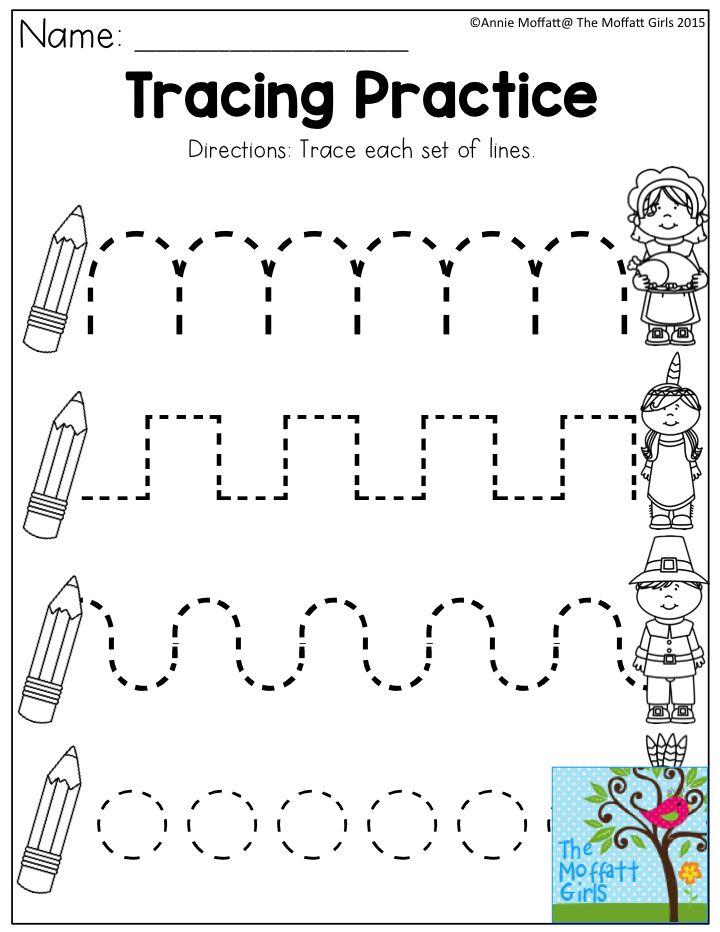 Therefore, the task of teaching the child to learn largely falls on the parents.
Therefore, the task of teaching the child to learn largely falls on the parents.
High cognitive interest plus developed attention, memory, thinking and other cognitive abilities will help you get used to school without stress, become more independent, proactive and avoid chronic academic failure.
See also: The benefits of entertaining mathematics and solving logic problems.
The ability to learn independently cannot be overestimated. Technology is developing many times faster than it was 20 years ago, and specialists of any profession are in the race for new knowledge. Try to imagine what will happen in another 20 years.
2. Creative thinking: the ability to think outside the box, contrary to patterns
The ability to create something new, unconventional - this is how classical psychology defines the concept of "creative thinking". You should not associate it exclusively with art: extraordinary solutions are welcome in any field of activity, be it acting or mobile application development.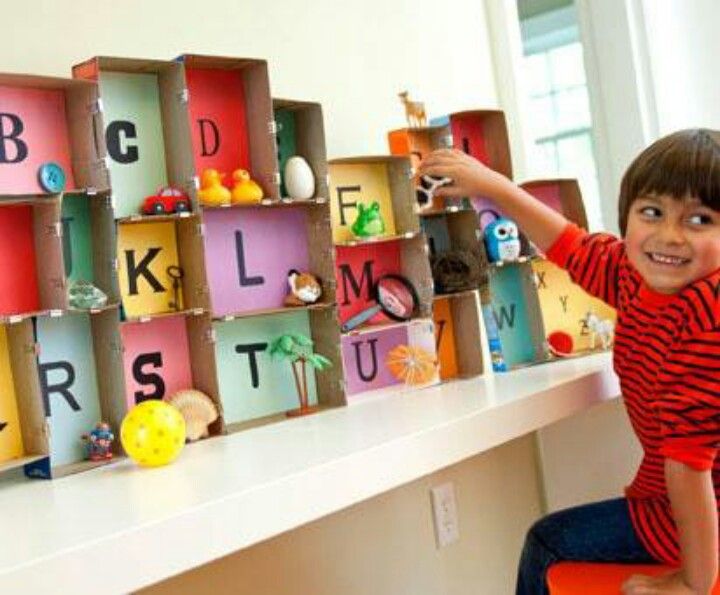
At the age of 5-7 years, thinking is not constrained by stereotypes and it is easier for a child to learn to be “creative”. This will help in the future to get out of any difficult situations, simply connecting creative thinking.
See also: 10 ideas and exercises to develop creativity.
The ability to think outside the box is useful not only in everyday life. For example, engineer and ornithologist Eiji Nakatsu developed a rounded nose for a bullet train. The idea came from observing the kingfisher, a bird whose streamlined beak allows it to fish easily, plunging into the water without splashing. This train design reduced air resistance and energy costs.
3. The ability to think logically: we develop logical and mathematical intelligence
Some everyday and educational problems can be solved creatively. But in most cases, when an objective, balanced approach is needed, creativity is not enough. Logical thinking comes to the rescue:
- ability to think;
- to prove the truth or falsity of judgments;
- make informed decisions;
- explain your position to yourself and others.
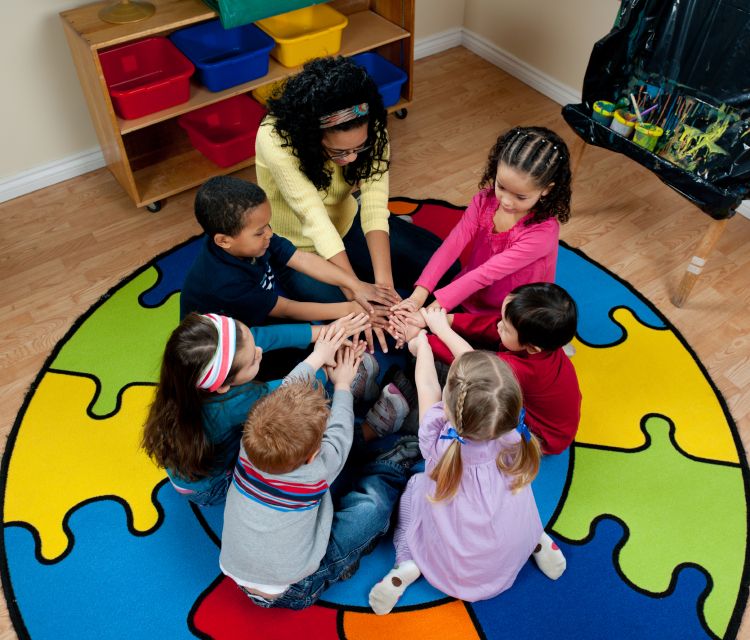
When a child pumps logical thinking and mathematical abilities, he learns to use specific concepts, "weigh" options and make decisions.
Solving entertaining logic problems is a proven way to develop logic in preschoolers and younger students. Is your child 5-7 years old? This is the perfect time to start.
Day after day, more than 100,000 students
complete 10-20 assignments on the LogicLike website. And how much can you? Choose where to start:
Riddles and questions Riddles and questions
Logic tasks Logic tasks
Children with developed logical and mathematical intelligence can easily cope with school mathematics. In grades 3-4, they win mathematical olympiads and, in general, have more chances for a breakthrough in overall intellectual development.
4. Spatial thinking and imagination: developing visual-spatial intelligence
It is possible to create 3D pictures in your head, look at them in great detail and rotate them as you like with the help of spatial thinking and imagination.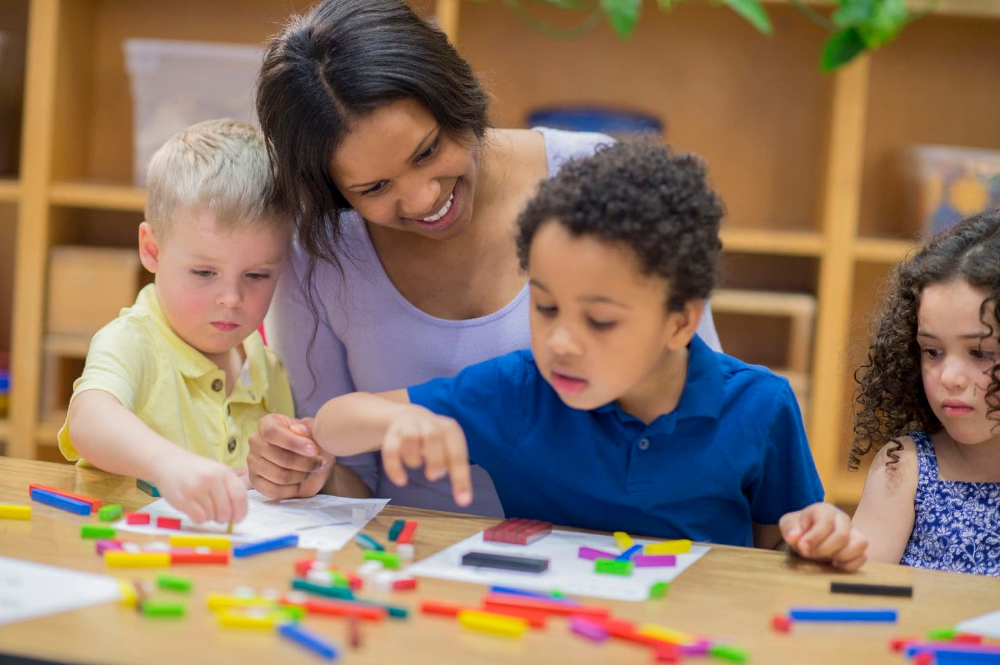 By developing these abilities, the child learns to navigate in space, recognize directions of movement, determine the sides of the horizon, understand the position of objects in space and perceive their shape.
By developing these abilities, the child learns to navigate in space, recognize directions of movement, determine the sides of the horizon, understand the position of objects in space and perceive their shape.
This is interesting: Games and tasks for the development of spatial thinking of preschoolers.
Universal skills for success in any endeavors
The ability and desire to learn, creative, logical-mathematical and spatial thinking are components of the intellect and are absolutely necessary for both children and adults. However, this is not enough to achieve success.
Special, "hard" skills (hard skills) affect a person's success in a particular activity. They, too, can and should be developed from childhood, especially if the child has obvious inclinations and interests.
What can determine the success of a person in a variety of activities? General, soft skills It is equally useful in study, work and personal affairs.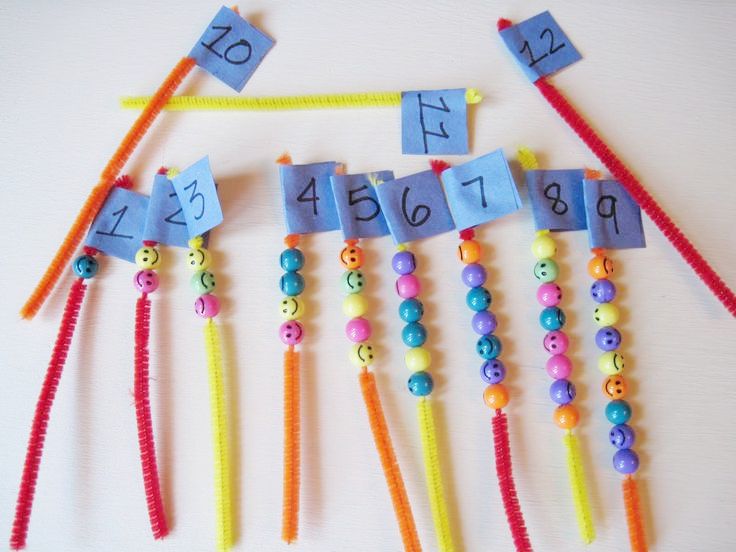 “Soft” skills are the basis for the development of special skills and human efficiency in everything.
“Soft” skills are the basis for the development of special skills and human efficiency in everything.
We have identified 4 universal skills, qualities (their groups) that will definitely be useful to your child at school and later in life.
5. Communication skills: the ability to communicate and speak in public
The ability to conduct a dialogue, negotiate, convince somewhere, and give in somewhere, helps to join the team and find a common language with any person. A sociable person is more likely to reveal his abilities and succeed than someone who is stuck in communication.
6. Ability to work with information
When the information in the head is not sorted out, but falls into a heap, it is much more difficult to find and use something valuable.
For effective work and study, it is important to be able to:
- evaluate information for accuracy and reliability;
- to filter out the superfluous and empty, to highlight the main thing;
- combine elements into semantic groups;
- memorize and find the right information in time.
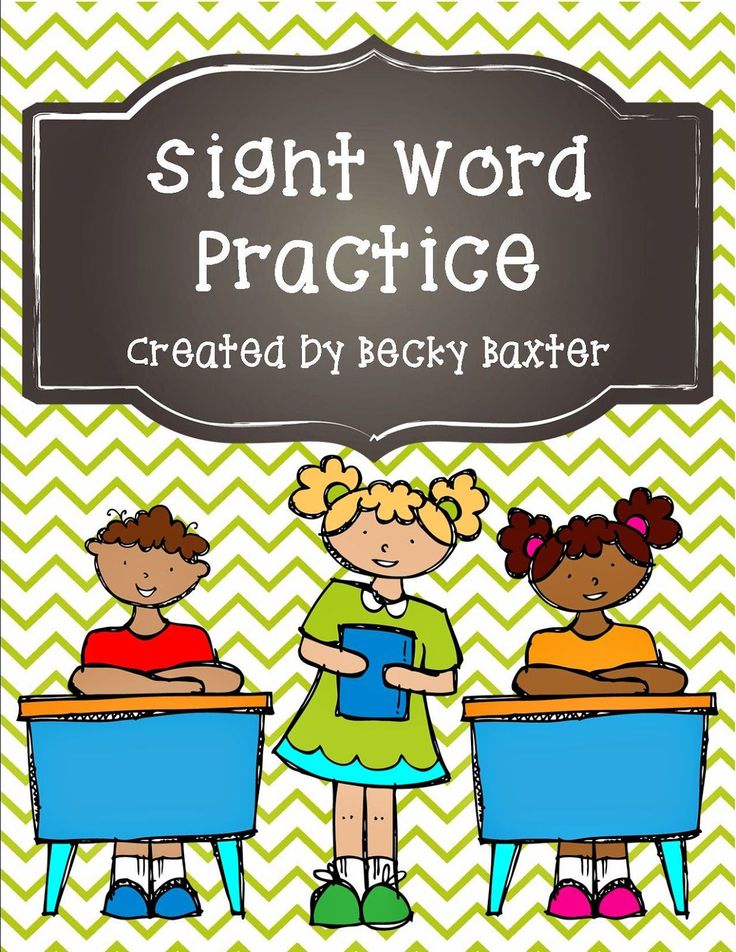
"Who owns the information, he owns the world."
Nathan Rothschild
7. Self-organization, time management
Sometimes it seems that a person's life is organized by circumstances. School drives into the framework of lessons for 45 minutes, work creates the boundaries of an 8-10-hour working day.
But without the ability to plan things and manage your time, it is difficult to be productive. This is something that is not taught in school, but without which it is difficult to do without in life.
“I’ve been thinking about how to kill time more than once!” said Alice from Lewis Carroll's fairy tale to the Hatter. He answered her:
“How can he (time) like this? If you didn’t quarrel with him, you could ask him for anything you want.
8. Personal qualities: leadership, will, perseverance
Purposeful, stress-resistant, responsible, proactive, hardworking, able to cope with routine tasks - like a torn line from a resume of a top specialist, isn't it? All these qualities are classified as soft skills. They are not related to a specific profession, but without them any work is difficult.
They are not related to a specific profession, but without them any work is difficult.
Personal qualities are formed in childhood and depend on upbringing. It is important in this regard to correctly “distribute responsibilities” between the school and parents.
Abilities and skills open up a world of possibilities for the child
It all starts with the discovery of the inclinations laid down by nature, which are easiest to develop into abilities. But without effort, even rich inclinations run the risk of remaining in the stage of unsprouted grains.
A vivid example is in the biography of the Russian painter Vasily Surikov. His inclinations for drawing appeared early, but by the time he entered the art academy, they were not developed to a sufficient degree, according to teachers.
“Is this your work? Yes, for such drawings, you should even be forbidden to walk past the Academy!
, the examiner remarked sternly.
Surikov did not agree, in three months he completed a three-year course with the artist Dyakonov and successfully entered.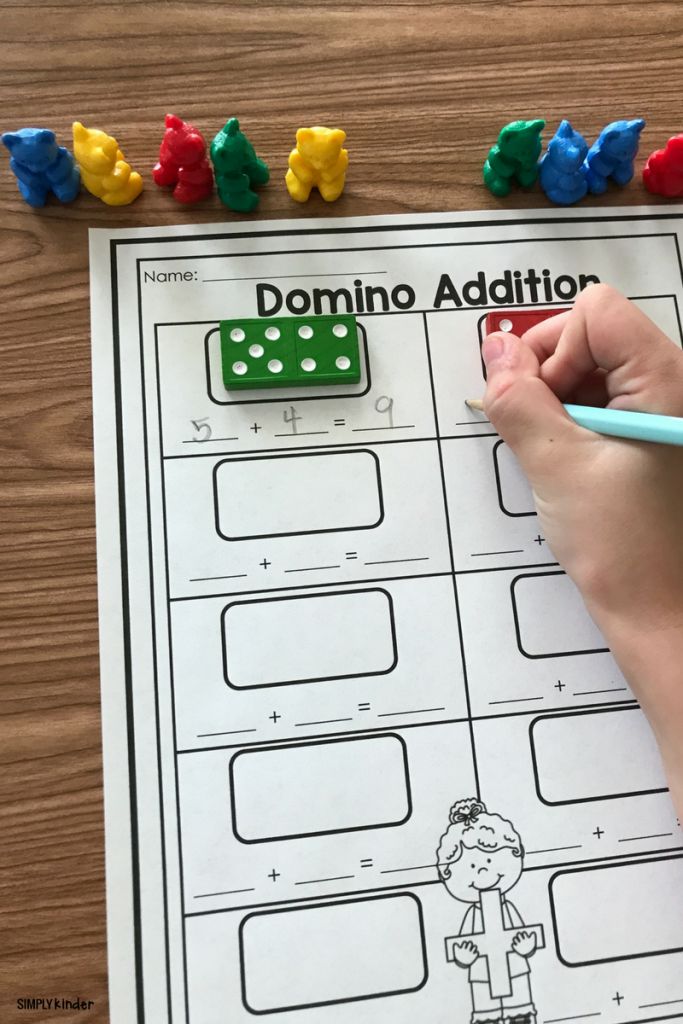 To make this example even more revealing, imagine that Surikov never discovered his ability to draw.
To make this example even more revealing, imagine that Surikov never discovered his ability to draw.
How do you like it if your child agrees with the school teacher, they say, “well, there are no abilities for mathematics and logic - a humanist”?
At any age, it's not too early and not too late!
In childhood, the potential for the distant future is laid. But does this mean that it is already too late for adults to develop their abilities? Not at all.
This is confirmed by people who debunk myths by their example. Belarusian biathlete Daria Domracheva received two higher economic educations before realizing in sports.
Self-taught artist Henri Rousseau began painting at a mature age, with only military service and customs experience behind him. It is never too late to develop and discover a second wind.
What else is worth remembering?
- Listen to your child and help him develop in what he likes. Do not try to realize only your ambitions, do not strive to grow a new Hans Zimmer or Steve Jobs.
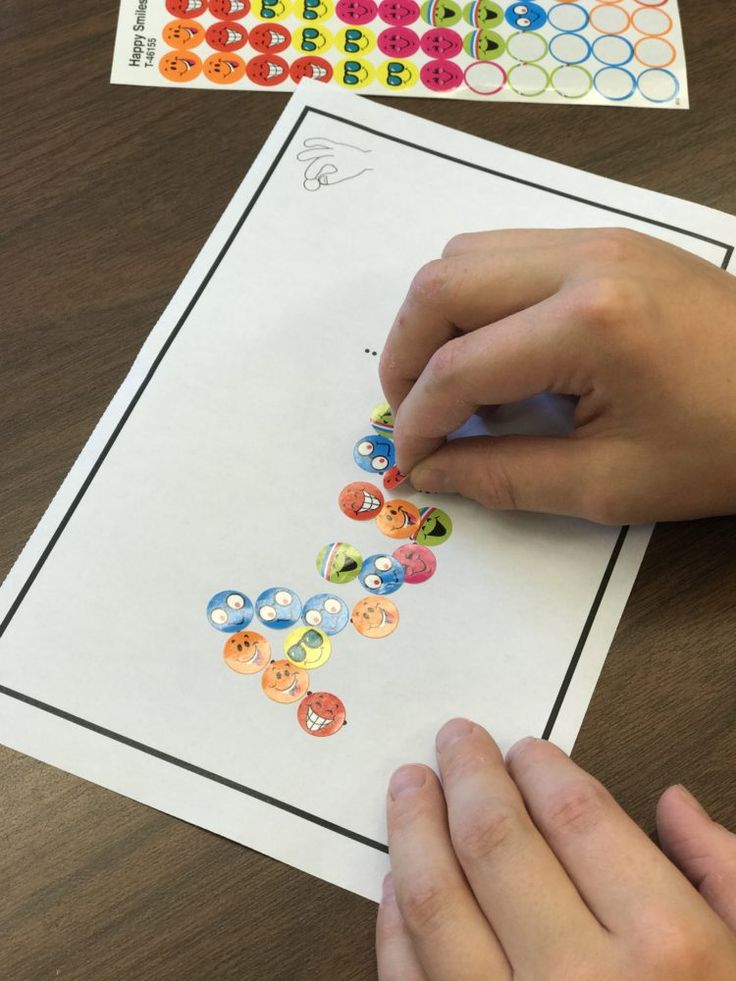
- Lay down the basic abilities that will definitely come in handy for any teenager and adult. For this, he will definitely thank you.
- Continue the development of thinking, cognitive interest and other skills with LogicLike. Our activities are fun for kids and adults!
On the LogicLike platform, we teach and develop children in a playful way, from simple to complex. Study online at any convenient time.
To share with friends:
What skills to develop in a child and how it will help in the future
Photo: Nicolas Picard / Unsplash
85% of a person's success in a profession depends on soft skills. Together with Natalia Gatanova, psychologist, mother and scientific director of the MKEBI Foundation, we figure out what these are and how to develop them in young children
Scientists divide human skills into two conditional groups: professional hard skills and supraprofessional soft skills.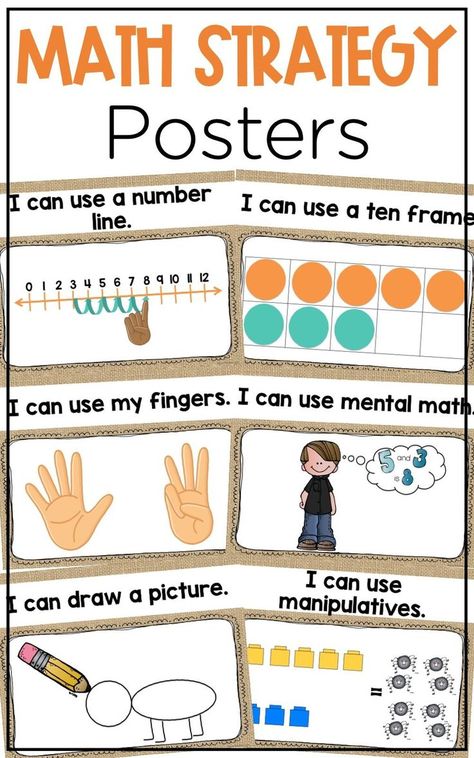
- Hard skills For example, a programmer's skill is to write code in python. hard skills can be learned at school, university, at work, courses or trainings.
- Soft skills (“soft” skills) is a set of social skills that help a person solve problems in life: communication, leadership, teamwork, people management, emotional intelligence. Soft skills cannot be learned in training, they are formed in childhood and develop throughout life.
A simple model of professional competencies in the form of a doll. “Hard” skills inside, “flexible” skills outside (Photo: Moscow School of Management Skolkovo)
According to the results of a joint study by scientists from Harvard, Stanford and the Carnegie Endowment, soft skills determine the success of a person in the profession by 85%, and only 15% depends on highly specialized skills.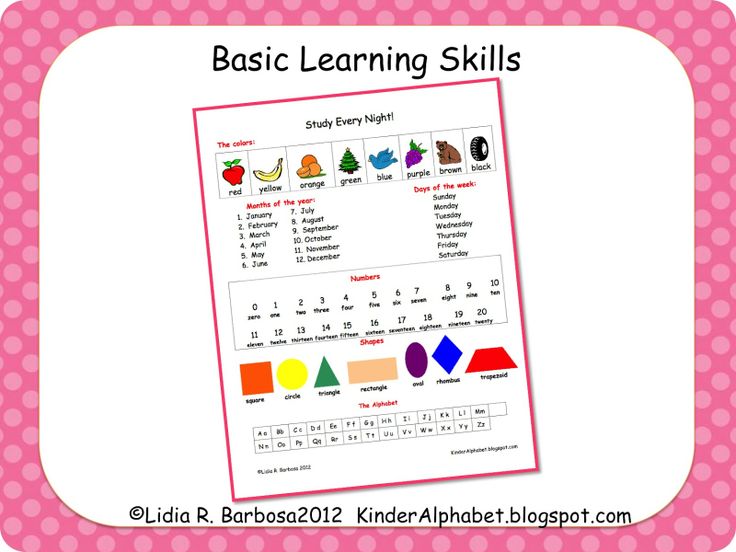
In a survey by the UK's Sutton Trust, 88% of young people, 94% of employers and 97% of teachers surveyed said they considered "life skills" as or more important than academic ones. The changing VUCA world requires a person to quickly adapt to the new. VUCA is acronym for instability (volatility), uncertainty (uncertainty), complexity (complexity) and ambiguity (ambiguity). It is important now to pay attention to the development of soft skills in a child to help them cope with changes and not get lost in the future.
Like adults, the most important skills for children are communication skills, while you need to pay attention to leadership and group work, says Natalia Gatanova, scientific director of the MKEBI Foundation.
- Communication skills. The child must learn to communicate: introduce themselves, get to know each other, agree to play together. If necessary, ask for help from adults or peers, offer to provide it yourself.
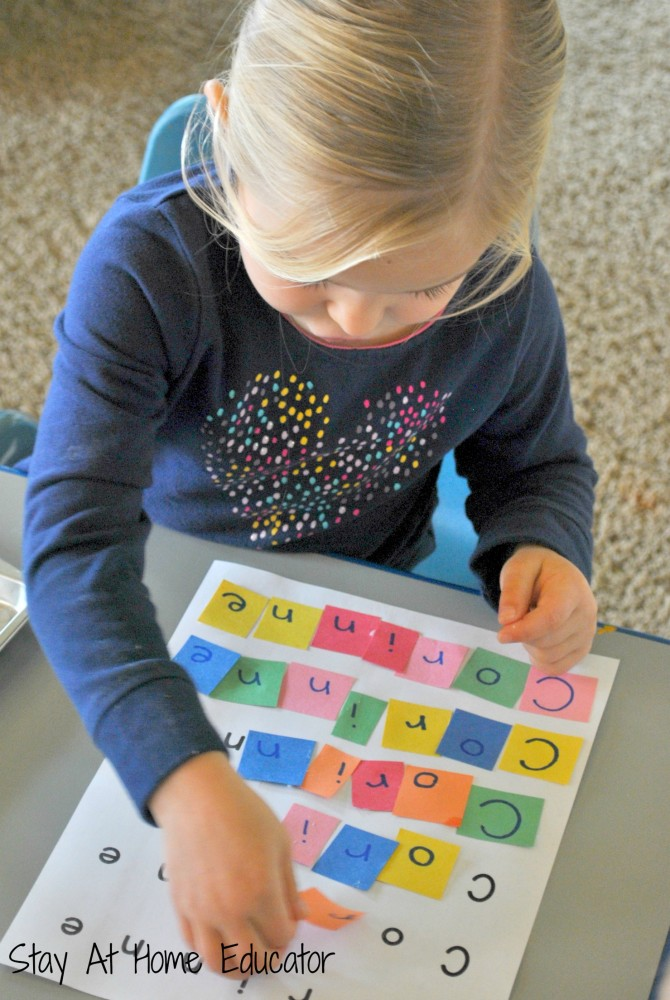 Explain exactly what they need and why. By developing communication skills, the child learns to accept different points of view and argue his own.
Explain exactly what they need and why. By developing communication skills, the child learns to accept different points of view and argue his own. - Leadership qualities. Leadership is confidence in yourself and your abilities. The child learns to take responsibility for the decisions made and the people around. If no one wants to play, he will offer to start. A toddler can feel invisible and unreal if he constantly waits for someone to organize the game for him or solve all the problems. Children should feel like full-fledged people who know how to achieve their goals and make the right decisions for this.
- Working in a group. The ability to work and be in a group with other children helps to achieve big goals, compete and negotiate, develops leadership and communication. Working in a group, the child is not afraid to accept the rules of the game, to maintain his role and enjoy it.
Six major megatrends that are changing the world.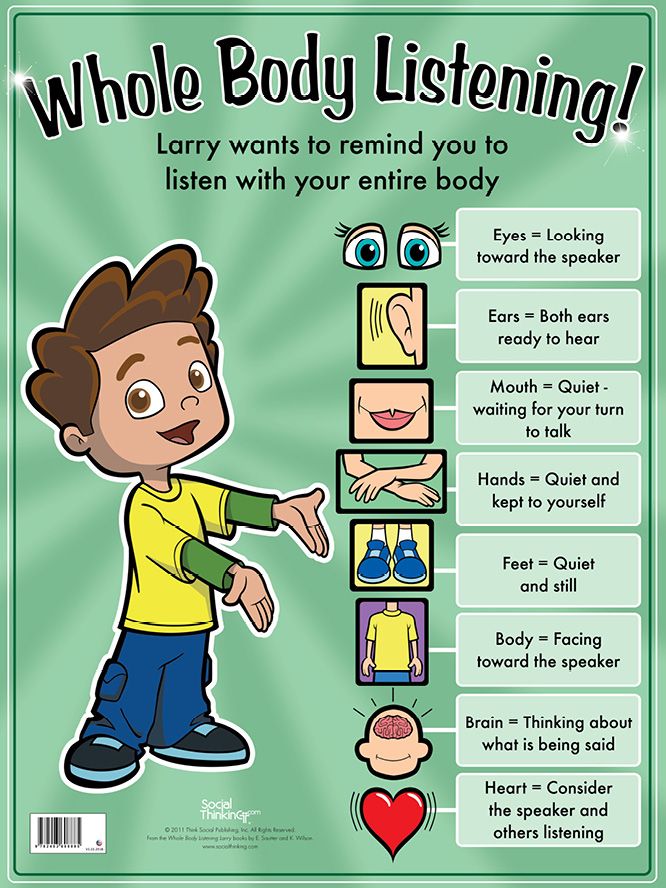 From the Skills of the Future report
From the Skills of the Future report
Global Education Futures and WorldSkills Russia experts recommend developing ten key skills that people will need in the future:
- Attention control and concentration. Will help to cope with information noise and overload, manage processes and solve complex problems.
- Creative thinking. In the future, routine tasks will be automated, so the skills of creative thinking and the creation of creative ideas will help to remain a sought-after specialist in the labor market.
- Logic. Logic develops computational thinking. Helps to solve complex problems and make informed decisions.
- Spatial thinking and imagination. Helps to correlate oneself with the surrounding space, imagine new objects and navigate in it.
- Information handling skills. Digital literacy and programming skills are as important as reading skills.
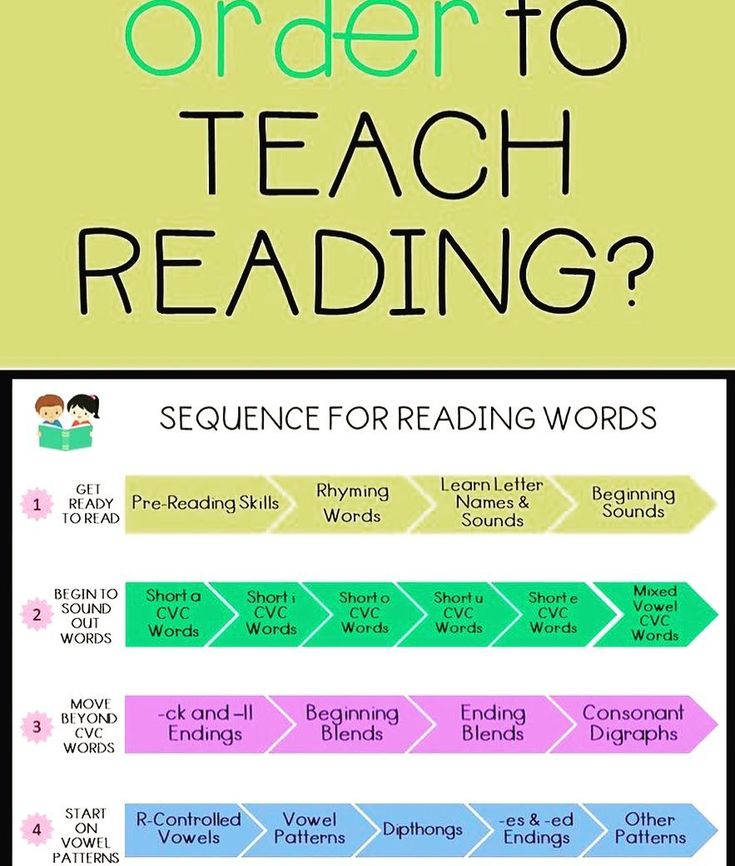 These are basic skills that everyone needs in a new complex world.
These are basic skills that everyone needs in a new complex world. - Self-organization and time management. Zoomers and millennials are more likely to choose a free schedule and change jobs. Remote work is becoming the norm and sets a new era - self-organization. Skills will help you manage time, projects and life.
- Emotional intelligence. Through emotions we react to what is happening around us. The skill helps to manage your emotional state, avoid neurosis, depression and apathy.
- Intercultural communication. Global changes are forcing economies, corporations and communities to come together to solve common problems. Intercultural communication skills help build relationships with people from other areas and countries.
- The ability to learn, unlearn and relearn. Self-learning helps you learn skills on your own in a rapidly changing world and adapt to change.
- Critical thinking.
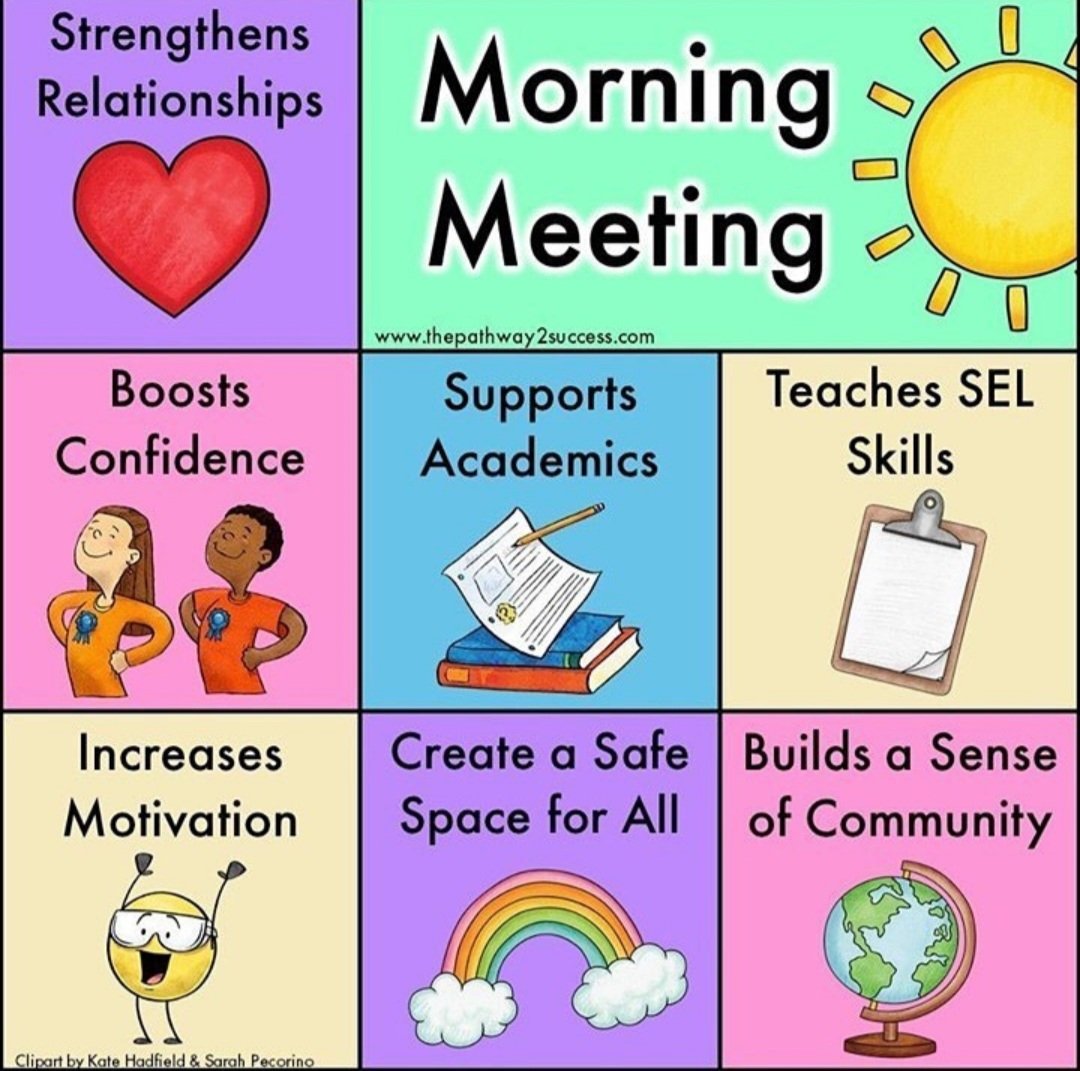 The skill helps to think clearly and rationally, look for a logical connection between facts and formulate strong arguments.
The skill helps to think clearly and rationally, look for a logical connection between facts and formulate strong arguments.
In her TED talk, teacher Rimma Rappoport talks about how children can develop soft skills in Russian language lessons0255 RBC Trends ), the child understands his needs if the mother adequately responds to them. That is, if a mother feeds her son when he is cold, he develops an incorrect understanding of himself at an unconscious level. Already at the age of three, the child wants to decide for himself: what cartoon to watch, what to wear and what toys to play. He imagines that the world is built around his desires. If a child does not understand himself, he cannot satisfy his needs.
In the theory of self-determination, there are three basic human needs.
- To be accepted — the child plays with other children, feels needed and useful.
- To be independent - the child understands that he can change something if he wants to.
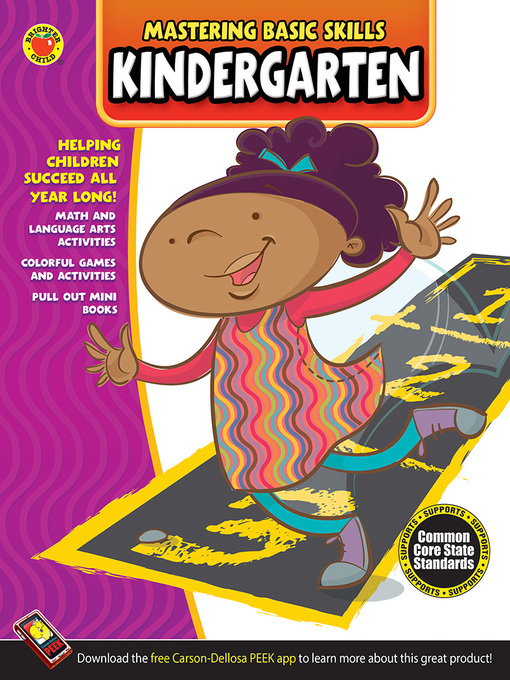 For example, put toys in your own way or choose clothes.
For example, put toys in your own way or choose clothes. - To be successful and competent - the child knows that if he is given a difficult task, he will cope with it. Adults may not pay attention to this, explaining with the phrase “you will grow up, you will understand,” but this is not true. You need to treat the child as a complete person.
Psychological comfort and health depend on the satisfaction of basic needs. If a child learns to understand and meet his needs in childhood, he will grow up to be an independent adult who responds calmly to difficulties. Such adults are sure that any problem can be solved.
Circles and sections develop, but you should not rely only on additional education. Soft skills are formed from birth, so it is better to set a personal example for a child and take him seriously.
- Personal example. The child adopts behavior patterns by imitating adults. Parents set patterns of communication if they openly communicate with people, express feelings, ask for help, solve problems.
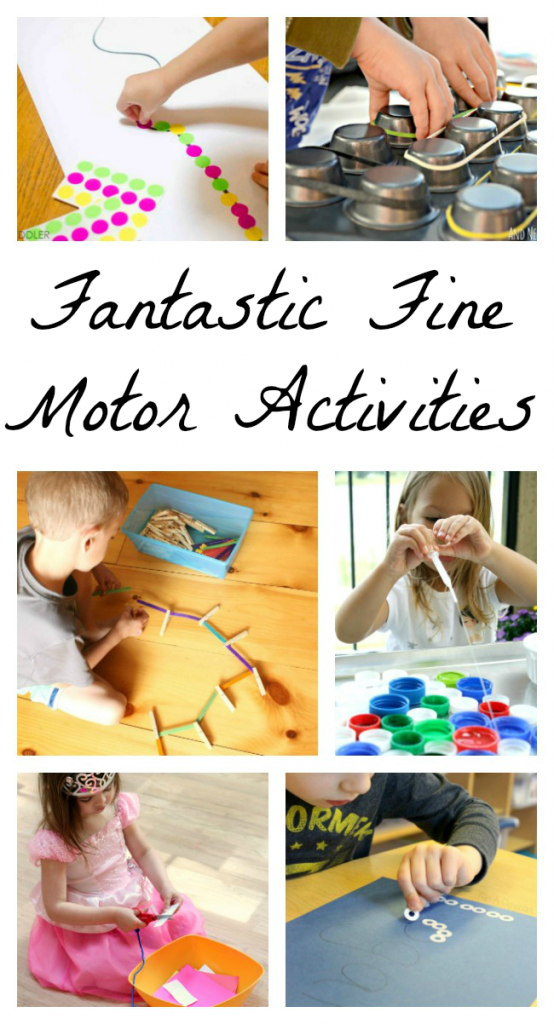 For example, if you want your child to say hello, say hello yourself.
For example, if you want your child to say hello, say hello yourself. - Attitude. A child is not a small adult who begins to live after 18 years of age, but a full-fledged person. Take your child seriously, ask his opinion. If you give a choice, it must be real. For example, the offer to choose a cup for milk is imaginary, because the child will still have to drink milk. Better ask what he wants to drink: tea, water, milk or juice.
- Inner environment. Relatives, friends and acquaintances - the inner circle of the child. They set patterns for all forms of communication that develop soft skills. If a child comes to a development group with an atmosphere of mutual respect and the opportunity for self-expression, soft skills will develop. At the same time, sending a shy child to a development group and expecting him to become a leader in it is not worth it. It is better to give the child a responsible task with the right to make mistakes.
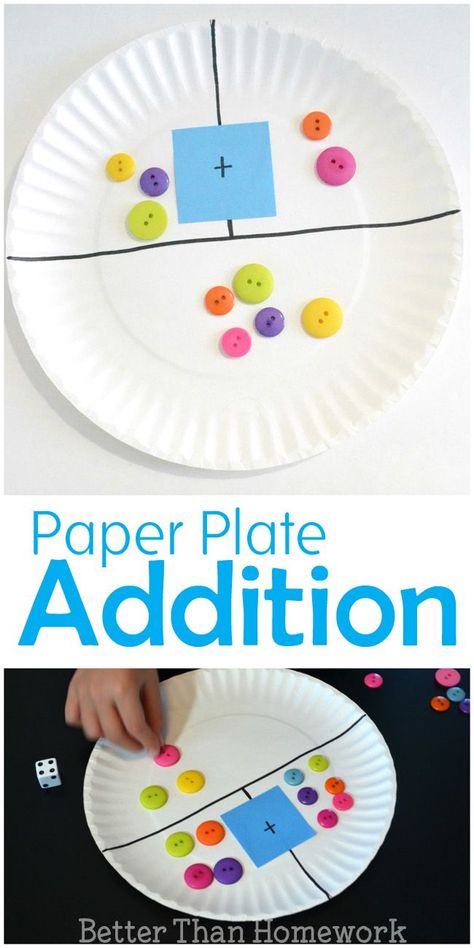 If there is a bakery on the ground floor of the house, assign a child to be responsible for the bread in the house. This is a task with real actions: take money, go to the store, choose bread and bring it home.
If there is a bakery on the ground floor of the house, assign a child to be responsible for the bread in the house. This is a task with real actions: take money, go to the store, choose bread and bring it home.
To see in time the difficulties with the development of soft skills in a child, look at his behavior. For example, if a child comes to a group of children, but cannot find a friend to play in 5-10 minutes, then he has difficulties. The child may not say hello, hide, or stand aside for a long time and watch other children play. Try to talk to him and find out the reasons for this behavior, contact a child psychologist.
Talk to kindergarten teachers, school teachers or parents of classmates. If it is difficult for adults to work with a child: he refuses everything, bullies the guys, “pulls the blanket over himself” - and this is not a one-time phenomenon, then there are difficulties.
Psychotherapist Andrei Kurpatov in the book Happy Child. Universal Rules” writes that not understanding the reasons for children's crying, parents defiantly leave the child alone with his misfortune, making a lot of mistakes in emotional education
Soft skills develop gradually throughout life.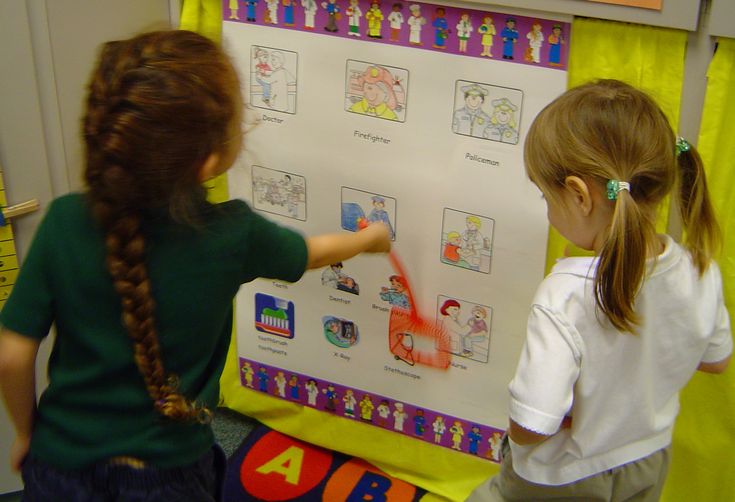 Some skills form others. For example, communication develops emotional intelligence and the ability to manage people. There is no set age when a child will grow up and trade one set of soft skills for others.
Some skills form others. For example, communication develops emotional intelligence and the ability to manage people. There is no set age when a child will grow up and trade one set of soft skills for others.
In order for the child to understand his needs and be able to meet them, the mother must correctly respond to the emotions and demands of the child in childhood and give the right feedback in a timely manner. Then, if a child breaks a toy and cries, he will understand that he is crying because of a broken toy, and not a bad mother. You need to believe in your child, love him and give him the opportunity to live, and not prepare for life in the future.
To develop your child's soft skills:
- Respond correctly to needs at an early age, give timely feedback. So the child learns to understand himself and satisfy basic needs.
- Pay attention to communication, leadership and group work - these are the most important soft skills in a child.
